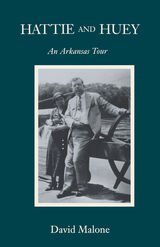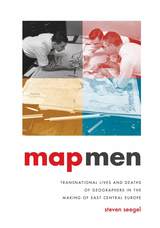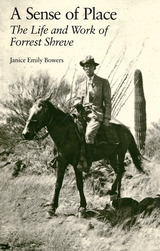3 books about 1878-1950

Hattie and Huey
An Arkansas Tour
David Malone
University of Arkansas Press, 1990
During the first eight scorching days of August in 1932, U.S. Senator Huey P. Long of Louisiana campaigned in Arkansas for the election of Hattie Caraway to the U.S. Senate. Caraway easily defeated six well-known opponents in a race she was not expected to win and became the first woman to be elected to the U.S. Senate. This volume is a textbook of politics and a sweeping picture of the Great Depression, as if those perilous times had been compressed into a week and a day. It is a fascinating look at two extremely different people caught briefly in a common purpose.
[more]

Map Men
Transnational Lives and Deaths of Geographers in the Making of East Central Europe
Steven Seegel
University of Chicago Press, 2018
More than just colorful clickbait or pragmatic city grids, maps are often deeply emotional tales: of political projects gone wrong, budding relationships that failed, and countries that vanished. In Map Men, Steven Seegel takes us through some of these historical dramas with a detailed look at the maps that made and unmade the world of East Central Europe through a long continuum of world war and revolution. As a collective biography of five prominent geographers between 1870 and 1950—Albrecht Penck, Eugeniusz Romer, Stepan Rudnyts’kyi, Isaiah Bowman, and Count Pál Teleki—Map Men reexamines the deep emotions, textures of friendship, and multigenerational sagas behind these influential maps.
Taking us deep into cartographical archives, Seegel re-creates the public and private worlds of these five mapmakers, who interacted with and influenced one another even as they played key roles in defining and redefining borders, territories, nations—and, ultimately, the interconnection of the world through two world wars. Throughout, he examines the transnational nature of these processes and addresses weighty questions about the causes and consequences of the world wars, the rise of Nazism and Stalinism, and the reasons East Central Europe became the fault line of these world-changing developments.
At a time when East Central Europe has surged back into geopolitical consciousness, Map Men offers a timely and important look at the historical origins of how the region was defined—and the key people who helped define it.
Taking us deep into cartographical archives, Seegel re-creates the public and private worlds of these five mapmakers, who interacted with and influenced one another even as they played key roles in defining and redefining borders, territories, nations—and, ultimately, the interconnection of the world through two world wars. Throughout, he examines the transnational nature of these processes and addresses weighty questions about the causes and consequences of the world wars, the rise of Nazism and Stalinism, and the reasons East Central Europe became the fault line of these world-changing developments.
At a time when East Central Europe has surged back into geopolitical consciousness, Map Men offers a timely and important look at the historical origins of how the region was defined—and the key people who helped define it.
[more]

A Sense of Place
The Life and Work of Forrest Shreve
Janice Emily Bowers
University of Arizona Press, 1988
Forrest Shreve (1878-1950) was an internationally known plant ecologist who spent most of his career at the Carnegie Institution's Desert Laboratory in Tucson, Arizona. Shreve's contributions to the study of plant ecology laid the groundwork for modern studies and several of his works came to be regarded as classics by ecologists worldwide. This first full-length study of Shreve's life and work demonstrates that he was more than a desert ecologist. His early work in Maryland and Jamaica gave him a breadth of expertise matched by few of his ecological contemporaries, and his studies of desert plant demography, the physiological ecology of rain-forest plants, and vegetational gradients on southwestern mountain ranges anticipated by decades recent trends in ecology.
Tracing Shreve's development from student to scientist, Bowers evokes the rigors and delights of fieldwork in the first half of this century and shows how Shreve's sense of place informed his scientific thought—making him, in his own words, "not an exile from some better place, but a man at home in an environment to which his life can be adjusted without physical or intellectual loss."
Tracing Shreve's development from student to scientist, Bowers evokes the rigors and delights of fieldwork in the first half of this century and shows how Shreve's sense of place informed his scientific thought—making him, in his own words, "not an exile from some better place, but a man at home in an environment to which his life can be adjusted without physical or intellectual loss."
[more]
READERS
Browse our collection.
PUBLISHERS
See BiblioVault's publisher services.
STUDENT SERVICES
Files for college accessibility offices.
UChicago Accessibility Resources
home | accessibility | search | about | contact us
BiblioVault ® 2001 - 2024
The University of Chicago Press









